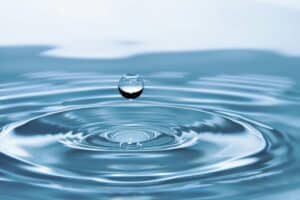How to know if you’re dehydrated?
Information provided by one of our talented team of experts – Grace Arrowsmith
The Power of H2O
As you may have guessed, hydration is an essential component of overall well-being. In fact, the vast majority of systems within the body rely on water. Water supports so many functions within the body including; oxygen transport within the blood, removal of waste products via the kidneys (and ultimately urine), supporting the digestive system and even helping to cool us down when we sweat. It’s also pretty important to note that it’s believed the brain is an astonishing 75% water – meaning hydration can affect our mood and concentration. To help keep all of this in check, the body maintains accurate fluid balance via a process known as homeostasis, which ensures we have the correct levels of water required to function optimally.
How much water do we need?
The amount of water we require is dependent on our lifestyle and the climate we live in. For example, those in hotter climates and those who are very active will require greater levels of water intake per day. Typically though, as per the UK public health guidelines, the average person should aim for 1.5-2 litres of water per day. To put this into context, a standard glass or mug sits at around 200ml, so we need to aim for 8-10 servings per day. We find a 500ml reusable water bottle can be help to track your intake (aiming for 4 a day), whilst also helping to support the environment – win win.
How to spot dehydration.
Thankfully, dehydration is easy to both spot and manage. The first place to start is by checking the colour of your urine (see below).

The darker the urine, or more yellow, the more dehydrated you are. We are aiming for clear (or close to) coloured urine, as an indicator of adequate hydration. Other intuitive signs of dehydration to look out for include;
- Dry mouth
- Sense of thirst
- Dizziness
- Headache
- Dry skin
Things to be mindful of
Staying hydrated all starts with drinking enough water, however it’s interesting to note that we would expect you to receive roughly 20% of your water intake from foods. Foods highest in water content include fruit and veggies, legumes and milk.
There are also times, you may need to be extra mindful… Firstly, a lack of water in the body can cause constipation, so ensure you top up those water levels if you’re feeling a little blocked up. Secondly, as we age the number of stimuli for thirst can fall, which may explain why we see greater levels of dehydration in the elderly population.

